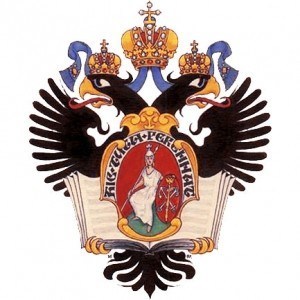Photos of university / #hse_university
Digital Urban Analytics is an innovative master's program offered by the National Research University Higher School of Economics, designed to prepare specialists capable of analyzing complex urban systems through the integration of digital technologies, data science, and urban planning principles. This program aims to equip students with the skills necessary to understand, model, and optimize urban environments using advanced computational methods and big data analytics. Students will engage with a comprehensive curriculum that covers topics such as geographic information systems (GIS), spatial data analysis, urban data visualization, smart city technologies, and sustainable urban development. The program emphasizes practical experience, encouraging students to work on real-world projects in collaboration with governmental agencies, technology companies, and urban planners. Participants will learn to develop and implement digital tools for urban management, infrastructure development, transportation planning, and environmental monitoring. Through a multidisciplinary approach, the program fosters innovative problem-solving skills designed to address contemporary challenges faced by cities worldwide, including population growth, climate change, and resource management. Graduates of Digital Urban Analytics will be prepared for careers in urban planning departments, consultancy firms, technological startups, government agencies, and international organizations focused on urban development and smart city initiatives. The program is conducted by experienced faculty members with expertise in data science, urban geography, information technology, and sustainable development, ensuring a rigorous academic environment combined with practical relevance. By the end of the program, students will have developed a strong portfolio of projects demonstrating their ability to analyze urban data and propose data-driven solutions for urban challenges. The curriculum also offers opportunities for internships and collaborations with industry leaders, enhancing employability and professional growth in the rapidly evolving field of digital urban studies.
Digital Urban Analytics at the National Research University Higher School of Economics is a cutting-edge master's program designed to equip students with the skills and knowledge necessary to analyze, interpret, and manage urban data in the digital age. This program focuses on integrating advanced data analysis techniques, geographic information systems (GIS), urban planning principles, and information technology to solve complex challenges faced by modern cities. Students will learn how to collect data from various sources, including sensors, social media, mobile devices, and administrative records, enabling a comprehensive understanding of urban dynamics.
The curriculum covers a broad range of topics such as spatial data analysis, urban modeling, data visualization, remote sensing, and machine learning applications in urban contexts. Emphasis is placed on developing practical skills through project-based learning, where students work on real-world problems related to urban development, transportation, environmental sustainability, and public services. The program also fosters interdisciplinary collaboration, encouraging students to work closely with urban planners, architects, data scientists, and policymakers.
Throughout their studies, students will gain proficiency in state-of-the-art software tools for spatial analysis and data management, including GIS platforms, Python, R, and other relevant programming languages. The program aims to prepare graduates for employment in various sectors such as urban planning agencies, research institutions, technology companies, and governmental organizations involved in developing smart city initiatives.
By the end of the program, students will be able to design data-driven solutions for urban challenges, contribute to the development of sustainable and resilient cities, and participate effectively in multidisciplinary teams. The Digital Urban Analytics master's program at HSE is committed to fostering innovative thinking and technical excellence, ensuring that graduates are well-equipped to lead the transformation of urban environments into smarter, more livable spaces.
Program requirements for the Digital Urban Analytics Master's programme at the National Research University Higher School of Economics include a strong foundation in mathematics, statistics, and computer science. Applicants are expected to have completed an undergraduate program in relevant fields such as urban planning, spatial analysis, data science, computer engineering, or related disciplines. Proficiency in programming languages such as Python, R, or MATLAB is highly recommended, alongside knowledge of data visualization tools and GIS software. The programme emphasizes interdisciplinary skills, requiring students to possess analytical thinking, problem-solving abilities, and familiarity with urban development challenges. Prior experience with spatial data analysis and familiarity with urban systems are advantageous. Applicants must demonstrate proficiency in English, as coursework and instruction are predominantly conducted in English. Submission of academic transcripts, a CV, a motivation letter, and letters of recommendation are part of the application process. For international students, additional documentation such as standardized test scores (e.g., TOEFL or IELTS) may be required. The programme aims to develop expert skills in processing and interpreting large datasets related to urban environments, integrating technological solutions with urban studies theories. Prospective students should possess a keen interest in smart city developments, sustainable urban planning, and innovative data-driven decision-making processes. Active engagement in projects, internships, or research activities relevant to urban analytics will enhance candidacy. The curriculum is designed for students with a background in quantitative methods, providing training in advanced spatial analysis, urban dynamics modeling, and software tools essential for modern urban research. Collaborative skills and the ability to work in multidisciplinary teams are also emphasized, preparing students for careers in urban data analysis, consultancy, and city management sectors.
The Digital Urban Analytics master's program at the National Research University Higher School of Economics offers a variety of financing options for prospective students. The program is primarily funded through a combination of university scholarships, government grants, and external partnerships. Students may apply for competitive scholarships based on academic performance, research achievements, or social status, which can significantly reduce tuition fees. The Russian Federation provides targeted grants for international students and domestic students, aimed at promoting advanced research and education in urban analytics, data science, and related technological fields. Additionally, the university collaborates with industry partners, including technological companies and urban development agencies, to sponsor students through sponsorship programs that often include stipends, tuition coverage, or project-based funding.
Foreign students have access to specialized scholarship programmes designed to attract international talent, often managed through agreements between the university and foreign governments or international organizations. These scholarships usually require candidates to demonstrate high academic achievement and commitment to urban analytics or data science. The university also offers payment plans and financial aid schemes to make the program more accessible for students from different economic backgrounds. Additionally, students may access external research grants and funding from private foundations that support studies aligned with urban development, smart cities, and data analytics.
The program emphasizes applied research and practical skills, preparing students for careers in urban planning, tech industry roles, government agencies, and consulting firms, which often provide further funding opportunities for research projects. The university actively promotes innovation and entrepreneurship among students, encouraging participation in hackathons, competitions, and startup initiatives that could lead to additional financial support. Overall, the financing of studies in Digital Urban Analytics is designed to be flexible and inclusive, aiming to attract talented students worldwide and support their academic and professional development through a diverse array of funding sources.
Digital Urban Analytics is a interdisciplinary program offered by the National Research University Higher School of Economics that focuses on the application of digital technologies and analytical methods to understand, plan, and manage urban environments. The program combines principles of urban planning, data science, information technology, and social sciences to equip students with the skills necessary to analyze complex urban systems through digital tools and data-driven approaches. Students learn how to collect, process, and interpret large datasets obtained from various sources such as sensors, GIS, social media, and other digital platforms. The curriculum covers topics like spatial data analysis, Geographic Information Systems (GIS), urban modeling, big data analytics, and smart city technologies. The program aims to prepare graduates for careers in urban planning, urban data analysis, smart city development, and related fields where digital solutions are integral to sustainable urban development. Students are provided with practical experience through internships, project work, and collaborations with city authorities and private sector companies involved in urban analytics and smart city initiatives. The program is designed for individuals interested in leveraging digital technologies to address challenges such as urban mobility, environmental sustainability, infrastructure development, and quality of life improvements. It also emphasizes fostering interdisciplinary collaboration among students and faculty, integrating insights from computer science, geography, urban studies, and public policy. Each year, the program attracts students from diverse backgrounds, including engineering, social sciences, and information technology, reflecting its multidisciplinary approach. Graduates of the program are expected to gain expertise in using digital tools to support evidence-based urban decision-making, optimize city operations, and contribute to innovative solutions for urban challenges in a rapidly evolving technological landscape. The program is aligned with global trends in urban digitization and offers students the opportunity to participate in international research and conferences related to smart cities and urban informatics.

